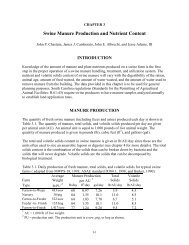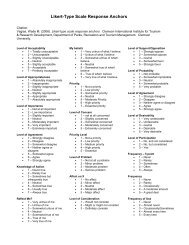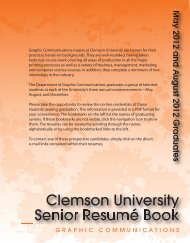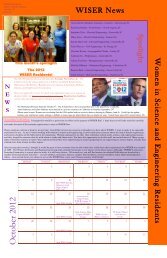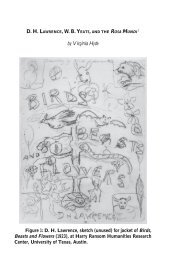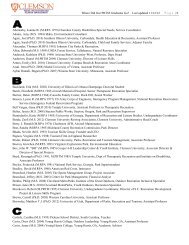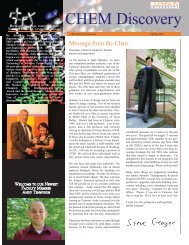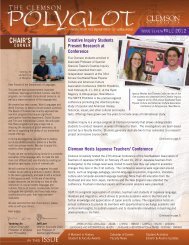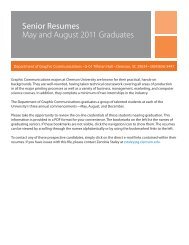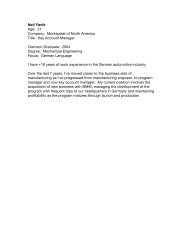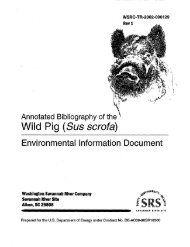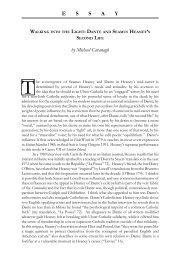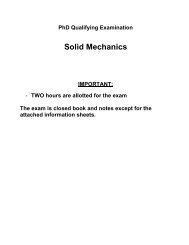Woolfian Boundaries - Clemson University
Woolfian Boundaries - Clemson University
Woolfian Boundaries - Clemson University
Create successful ePaper yourself
Turn your PDF publications into a flip-book with our unique Google optimized e-Paper software.
Woolf’s Transformation of Providential Form<br />
117<br />
to his faith in proportion. In his eff ort to convert others, Bradshaw is a force against life:<br />
he “forbade childbirth” (84) and “feasts most subtly on the human will” (85). At her party<br />
Clarissa thinks that he is “obscurely evil…capable of some indescribable outrage—forcing<br />
your soul…they make life intolerable, men like that” (157). Th e capstone of Bradshaw’s role<br />
as a force against life is, of course, his condemnation to death of Septimus.<br />
Septimus embodies the spirit, not the letter, of Christianity. He regards himself as a<br />
universal Messiah, unattached to a specifi c religion, and desiring not to convert and judge<br />
others but simply to share his message of love and peace. And in his respect for trees he is<br />
a force for life. Bradshaw embodies the letter of Christianity, the dogmatic perversion of<br />
Christ’s teachings, demanding that people convert to his religious views and condemning<br />
nonconformists to death. By equating Bradshaw, in Septimus’s view, with “human<br />
nature,” Woolf intimates the prevalence of the hypocrisy of Christianity. She sees Christianity<br />
as having strayed far from striving towards the love and peace that Christ originally<br />
preached and which Septimus too preaches.<br />
Th e confrontation between Bradshaw and Septimus occurs, as already noted, “in the<br />
middle of the novel.” Woolf repeatedly stresses that it occurs at the middle of the day, noon: “It<br />
was precisely twelve o’clock; twelve by Big Ben.… Twelve was the hour of their appointment”<br />
(80). During this appointment, as Septimus is evaluated by Bradshaw for apparent madness,<br />
he tells himself, “Once you fall…human nature is on you” (83). Septimus regards Bradshaw as<br />
“remorseless” and a “torturer” (83), while Bradshaw patronizingly prescribes “milk in bed” for<br />
a patient who to him is one of many deluded “prophetic Christs.” While Christianity teaches<br />
that once you fall—that is, once you sin—the judgment of Christ is upon you, in this case the<br />
role of judger and judged are reversed: human nature here judges the Christ fi gure.<br />
Th e structuring of Mrs. Dalloway around a noon scene exemplifi es what Alastair Fowler<br />
discusses as the Christian literary tradition of Providential form. Th is form involves the<br />
structuring of a literary work around what Fowler calls a “numerological centre,” one concerning<br />
Christ’s judgment. Fowler explains that this structure emerged in the Middle Ages,<br />
when “the theological tradition of Biblical exegesis…taught the habit of regarding the most<br />
serious literature as numerically constructed, and of giving special attention to the centre<br />
verses of chapters, in the search for types of Christ” (66). Th is prioritization of a work’s<br />
centre was prompted by the biblical book of Malachi, which describes how precisely at<br />
noon (the centre of the day) the “sun of righteousness” appears (4.2). Christian readers in<br />
the Middle Ages regarded this “sun of righteousness” as an emblem of Christ-come-in-judgment.<br />
Fowler observes Providential form throughout Elizabethan and Baroque poetry. He<br />
notes, for instance, the presence of angels and a rising sun in the numerically central stanza<br />
of Donne’s “Nuptial Song,” as well as the Messiah’s returning ascent to Heaven, after defeating<br />
Satan and his band, at the centre of Paradise Lost (Fowler 72, 116-17). 1<br />
Douglas Brooks extends Fowler’s observations by observing Providential form in eighteenth-century<br />
British novels, including Daniel Defoe’s Robinson Crusoe. Woolf’s diary and<br />
Common Reader essays demonstrate her deep familiarity with the British literary canon, and<br />
convey her particular fondness for the writing of, among others, Donne and Defoe. Her essay<br />
“Defoe” in Th e Common Reader predates Mrs. Dalloway by several years. Robinson Crusoe<br />
may have off ered Woolf the model for the providential structure of Mrs. Dalloway, and certainly<br />
she might have observed it in many other British literary works. I suggest that Woolf<br />
appropriated the Providential form from writers who used it to advance Christianity. Th is



